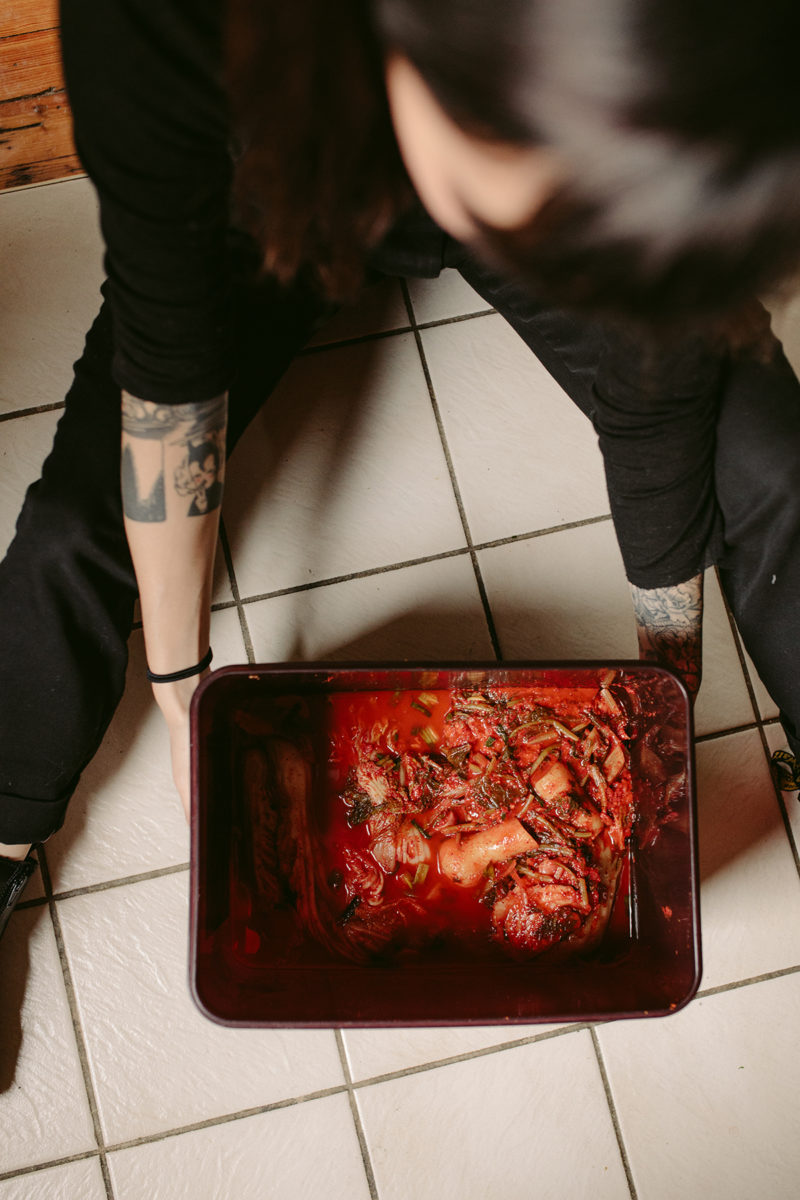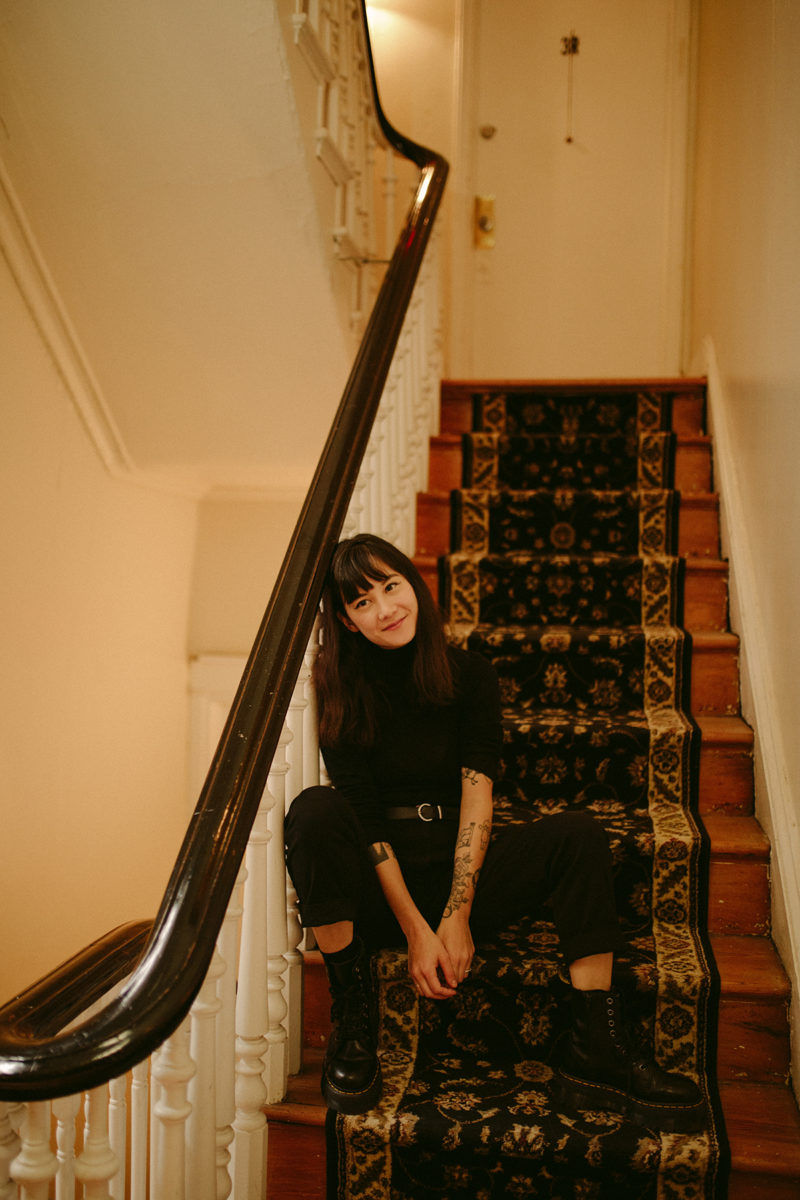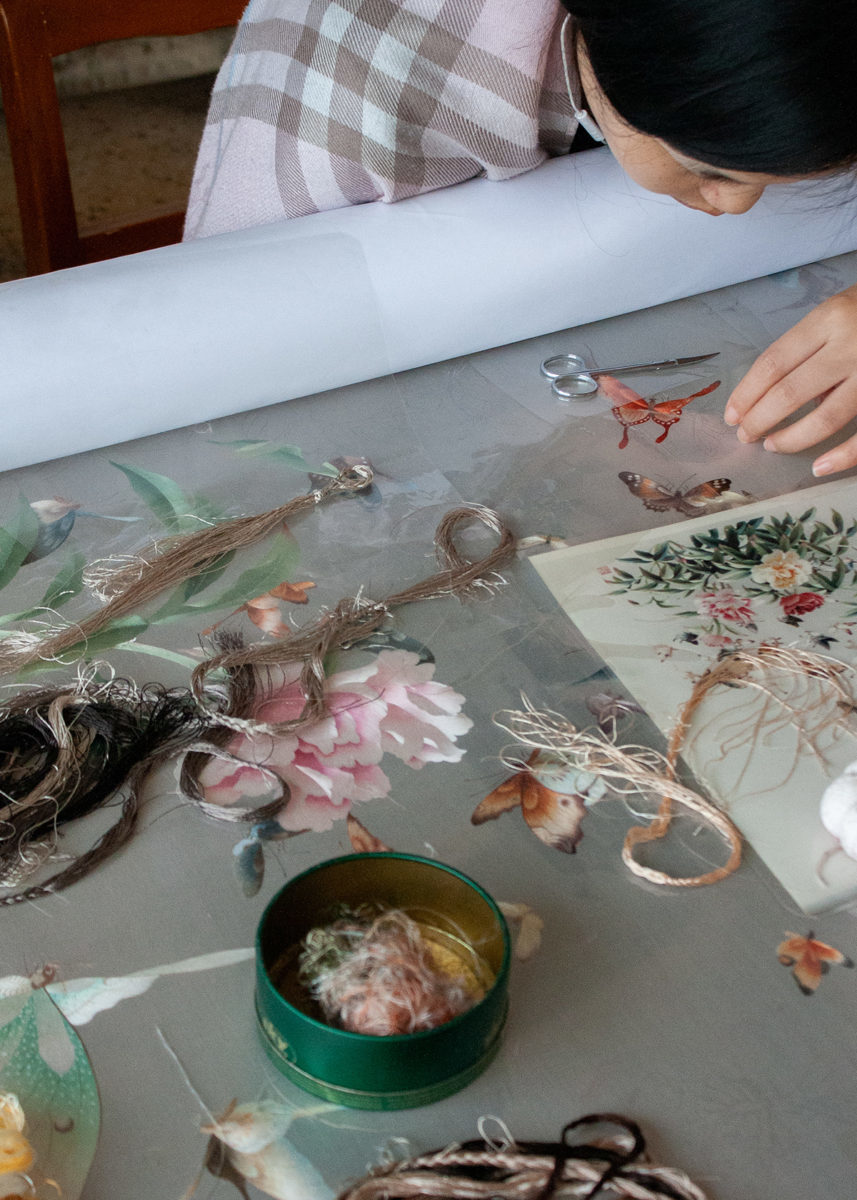Travel-inspired methods to lift your spirits, ease anxiety, and find a sense of balance.
Like everyone else, we’re taking a pause from travel to do our part in protecting global health. In the meantime, we’re taking the best lessons about mental wellness we’ve learned from traveling and applying it to our current moment.
Whether you’re trying to adjust to working from home or simply looking to find a sense of calm, we’ve compiled the best mental health tips we’ve learned from our travel community over the years—think of these as little mental getaways. We’ll be following the same advice in the coming weeks.
1. Take Care of Basic Needs
Whether you’re trying to prevent burnout on the road or while biding your time at home, taking care of basic needs will lay the foundation for further self-care practices. Dr. Erica Matluck, a naturopathic doctor and nurse practitioner who specializes in stress management, suggests sticking to what she calls “the foundations of health.” This means:
- Eat real food (or the diet that you know works best for you).
- Get enough sleep.
- Manage your stress. (More on that later!)
- Exercise or get some kind of movement.
- Make time in your schedule to do things that bring you joy.
On the sleep front, Amira Kassem, founder of Flour Shop couldn’t agree more: “I go to bed really early no matter what I’m doing or where I am,” says Amirah Kassem, founder of Flour Shop. “We charge our phones every night; we need to also think about charging our bodies every night.”
2. Visit Your Happy Place Through Memories
Although you may be unable to physically travel, a trip down memory lane may do the trick. For example, Michelle Zauner—also known as singer-songwriter Japanese Breakfast—cooks her favorite childhood recipes to remind her of happy times with her mother, which alleviates stress and loneliness.
“Cooking is kind of all-consuming in a way.“
“I’m a very nervous person, always trying to do too many things at once, always thinking, like, five steps ahead of everything. But cooking is kind of all-consuming in a way,” Zauner shared with us. “You’re thinking five steps ahead, but you’re not thinking about tomorrow, you’re not thinking about all the things you have to do next week. You’re thinking, like, Okay, when I take out the noodles I have to rinse them and then I have to turn down the heat here… It just feels like that nervous energy is being put to use.”
3. Find Rituals that Alleviate Your Anxiety
Time and time again, our community has sung the praises of yoga, and we’re inclined to join in. Dedicating just a few minutes a day to stretching and deep breathing works wonders for maintaining mental wellness, whether you’re exhausted from a long journey or simply trying to relax your body and spirit.
“Yoga is, in a lot of ways, a meditation, just a moving meditation,” says Joe Kudla, founder of Vuori. “You’re not talking, you’re just silent with your own breath for an hour. So just that experience alone is going to help you to cultivate a lot of awareness in your life.”
But even just meditation can make a difference. “Meditating switches off the sympathetic nervous system (a.k.a. the fight or flight response that tells our body it is being attacked) and turns on the parasympathetic nervous system (a.k.a. the relaxation response that tells our body that everything is all good),” says Jesse Israel, who hosts The Big Quiet. While Israel’s traveling yoga movement gathers thousands together for mass meditation, the same concept applies to individual practice at home, if say, you’ve been overwhelmed by the news cycle and the flood of high-stress social media posts.
“That experience alone is going to help you to cultivate a lot of awareness in your life.“
Alternatively, if you’re looking for more instant remedies, CBD is an increasingly popular way to soothe the mind.
“One of my favorite things ever is an inhaler [for CBD]—it has different herbs in there plus CBD, and I’ve never had anything work so fast,” recommends Harlee Case, founder of Cannabis Company Ladies of Paradise in Portland, Oregon. “If I’m having an anxiety attack, I just, like, go off alone and smell it for a little bit, so it always goes in my purse.”
Of course, always talk to your doctor before starting any new supplements or at-home anxiety remedies.
4. If You’re Working Remotely, Set Boundaries
Many travelers dream of becoming digital nomads and working remotely at all times. But it should go without saying that trying to adjust to this new way of life while managing anxiety surrounding a pandemic is no easy feat. However, expert remote workers can offer a few ways to maintain a work-life balance, even when it’s all happening in the same place.
“I highly recommend setting boundaries and using your calendar to block out time for yourself,” suggests actress and fashion blogger Danielle Cooper. “Our time and energy are important. Make sure that you are allocating time throughout the day to accomplish all that you need to. I carve out a few hours a day to [work out], as well as focus on authentic storytelling. I reply to emails and messages as needed.”
“Learning what needs turning down is really valuable.“
It may also be easy to feel overwhelmed during this time. But being honest with yourself and those around you about how much you can handle—and asking for help when you need it—is another key to remote working (especially since many of your coworkers are likely feeling the same stress!).
“Work-life balance is challenging because the two are sometimes so blurred,” says blogger Lucy Williams of Fashion Me Now. “When the things I love start to feel like a chore, that’s when I know I need to step back and have some downtime. I’ve really learned the positive side of saying “no,” too… Learning what needs turning down is really valuable. It’s not easy all the time but it’s definitely great a lot of the time.”
5. Seek Happiness in the Arts
During our travels, we’ve seen how the arts can heal; we need only to look to places like Buenos Aires, Argentina, Reykjavík, Iceland, and Suzhou, China, to see how art can be incorporated into daily self-care routines.
Since we now have more free time than ever, many people (including us!) are focusing on this moment as an opportunity to pursue creative projects. And while no one should feel pressured to be producing volumes right now—again, the stress is real!—creating feel-good work may also make you, well, feel good.
“I naturally gravitate towards being optimistic about things.“
“I think I naturally gravitate towards being optimistic about things—and a lot of art today is pessimistic,” says Jean-Philip Grobler, lead singer of St. Lucia, who strives to make uplifting music. “To make something that’s beautiful and inspiring—not ignoring the challenges of the present, but presenting it in a way that’s like, being a human doesn’t necessarily have to mean that you’re destroying the world, it could mean that you’re maybe making it better in some kind of way.”
6. Accept that Everyone Works Differently
Whether you’re quarantined with other people or separated from loved ones, chances are you’re navigating new constraints on your personal relationships. The key is to have open conversations about how each person operates and respecting one another’s needs in order to maintain peace. We looked to touring bands to see this philosophy at work.
“For us, I think [sharing a space] is a balance between togetherness and aloneness,” says Katie Gavin, vocalist of MUNA. “I think for it to be sustainable, like any intimate relationship, we have to have our boundaries. Everyone is different. It’s about accepting what everyone does.”
”It’s a weird dichotomy of separation and becoming closer through that separation.”
The sisters of Krewella, too, recognized early on the importance of maintaining balance in relationships.
“It’s been more about energy and respecting the other person’s space or their style of communication,” says Krewella’s Jahan Yousef. ”It’s a weird dichotomy of separation and becoming closer through that separation and knowing when to set boundaries.”







